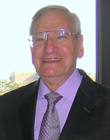Open Data and Science: Towards Optimizing the Research Process
Speaker

Jean-Claude Guédon
Université de Montréal
The shift to a digital context has transformed scientific communication deeply. The rapid and enormous growth in computing power has also led science itself to approach reality in new ways. Both trends stand behind the rise of open science and open data.
The Open Access movement has already transformed the publishing of research results: new business models, new forms of dissemination, new retrieval tools, and new preservation strategies. It is also beginning to affect the ways in which scientific work is being evaluated. Finally, the emergence of open access to published articles has foregrounded the importance of machine reading whenever vast quantities of documents have to be treated: with it, retrieving, re-using, remixing and reorganizing knowledge can proceed much more efficiently.
The growth in computing power amounts to an epistemological transformation that builds upon the logical revolution initiated in classical antiquity, and upon the experimental method which forms a crucial element of the “Scientific Revolution”. Model building is fast becoming the approach of choice for an ever greater proportion of scientific problems. However, model building requires easy access to large amounts of data. These data sets must be organized, curated and made to work across laboratories and disciplines. Issues of replicability and verifiability are at stake in this context.
In conclusion, the computer and the Internet are transforming science in profound ways, and open science and data testify to this fact. This double shift is sufficiently momentous to be compared to the invention of writing and of printing.